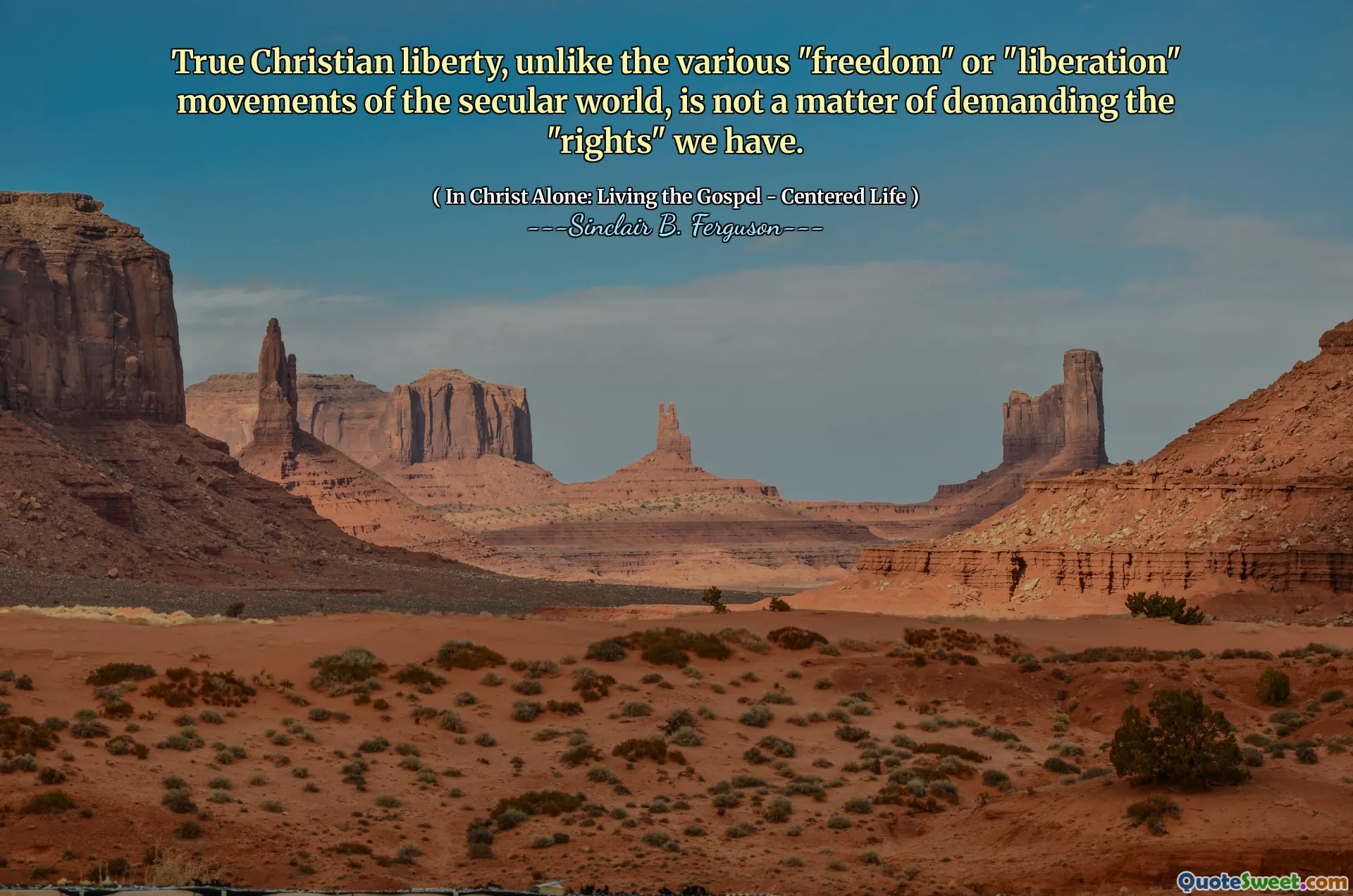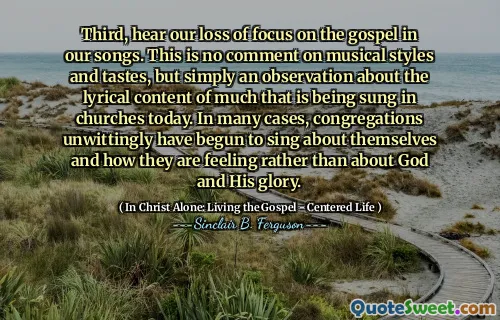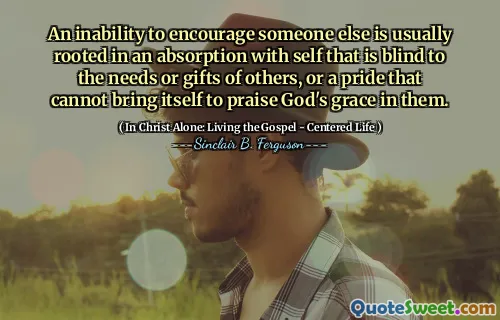
True Christian liberty, unlike the various "freedom" or "liberation" movements of the secular world, is not a matter of demanding the "rights" we have.
This quote offers a profound distinction between secular notions of freedom and the concept of liberty as understood within Christian theology. It challenges the modern, often individualistic narrative of freedom, which typically centers around asserting and claiming one's rights. Instead, it redirects our understanding toward a spiritual liberty that is deeply rooted in the Christian faith. True Christian liberty is not about clamoring for rights or asserting oneself against external constraints; it is about a transformed inner life, a freedom that arises from being in Christ. This liberty grants believers the ability to live in obedience to God’s will, which ironically, brings genuine freedom rather than limitation.
The secular view of freedom often focuses on emancipation from laws, restrictions, or societal norms, frequently emphasizing autonomy. Christian liberty, as suggested by Sinclair B. Ferguson, calls us to a higher realization—that true freedom manifests when we are no longer enslaved to sin and are fully aligned with Christ’s lordship. This freedom frees us not to indulge our desires unrestrainedly but to serve others and to live righteously. The quote encourages reflection on how freedom should not be a tool for self-assertion but a grace-given empowerment to live faithfully and obediently.
This perspective is greatly needed today when freedom is a frequently contended term in cultural and political debates. By rooting liberty in the gospel rather than temporal rights, one is reminded that Christian freedom centers on identity in Christ and submission to Him, which paradoxically is the pathway to true liberation.









